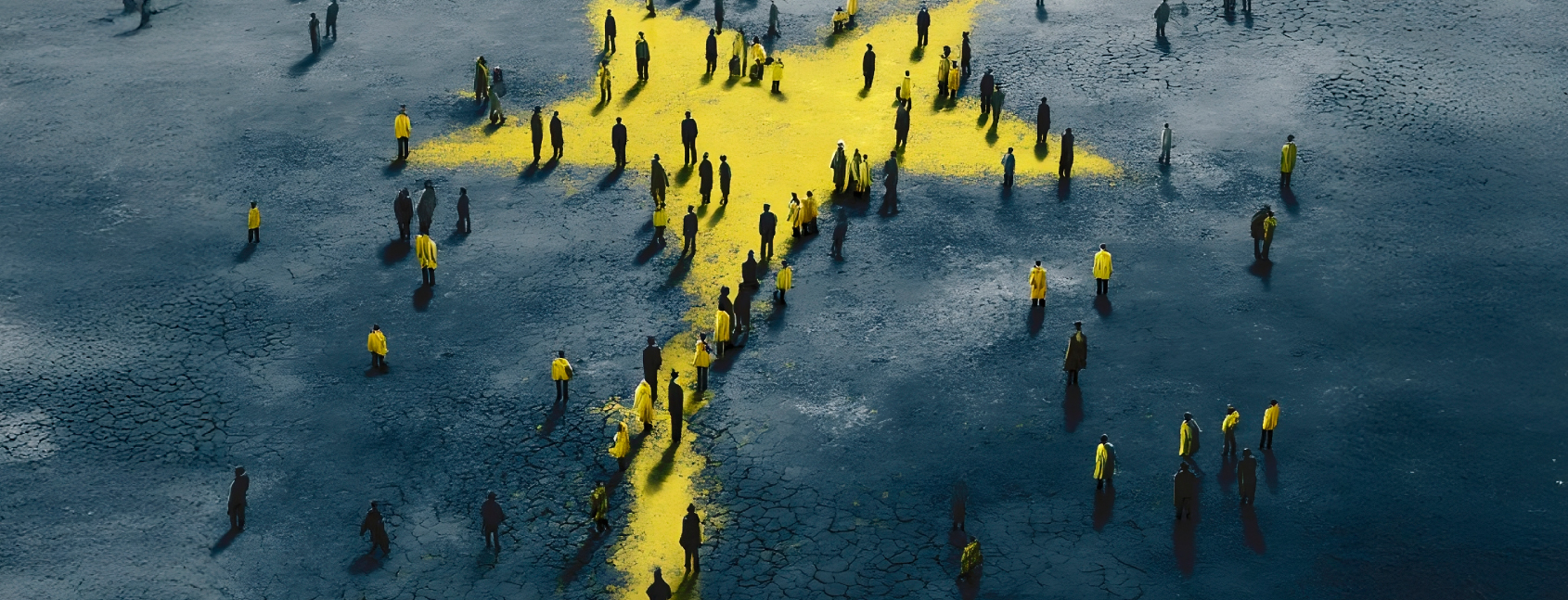-
TrendsEuropean AffairsEconomy
-
SectorPublic Administration
-
CountriesBrussels / European Union
May 9, Europe Day: a changing Union and its consequences for businesses
Some may find the adjective “changing” exaggerated, but if we look at it with perspective, it could be said that the European Union, which today celebrates the 75th anniversary of the Schuman Declaration, is undergoing a process of profound transformation in response to the triple impact it has suffered in recent years: the return of war to Europe with the conflict in Ukraine, the erosion of the transatlantic link with the Trump 2.0 era, and the evidence of European technological and economic decline compared to the US and China.
This triple impact has eroded three of the pillars on which the European project has been based since its inception in the 1950s: first, the idea that collaboration, integration, and openness would banish war from Europe. To paraphrase the Schuman Declaration itself (“Europe was not made, and war has been avoided”), Europe was made, but war has returned. Secondly, the biunivocal transatlantic relationship, where the US was involved in our security and we accepted its geopolitical and economic leadership. And finally, the good economic results that the European project brought for decades.
Today we are witnessing not the end of Robert Schuman’s dream, but its transformation: a Union that recognizes that defending peace and the European project requires new tools and a different way of being in the world. That is why the EU is currently in a moment of reaction and change. A moment of priorities, policies, legislation, and budgets. This is evident in the many events, statements, and actions that are taking place around us, without ceasing. Many examples could be cited, here are just a few.
A Union born as a peace project is sending weapons to Ukraine and supporting, in an unprecedented manner, the expansion of European military spending. On the night of his election victory, a German chancellor stated that his first objective was to “break away from the US,” signaling the end of the transatlantic link as we knew it. And a Union with a DNA of economic openness and free trade appoints a commissioner for “economic security” who is asked in his mission letter for “a more assertive trade policy that protects and defends us from unfair competition and security risks.”
The outcome of this European mutation is uncertain, but it has some clear driving forces: security, competitiveness, and geopolitics. If you want to get a clear picture, you can read the recent interview with the President of the Commission in Die Zeit, which paints a vivid picture of this exceptional moment of change… and uses the word “crisis” twelve times.
We must assume that this transformation will have an impact on us, especially on our companies.
All will be affected by the changes to come. Although in some ways, for companies, these may be “the best of times and the worst of times,” as Dickens said at the beginning of A Tale of Two Cities. It will be a good context because they will be at the center of European attention, and emphasis will be placed on issues such as reindustrialization, innovation, simplification, and deepening of the internal market. But it will also be a bad context, with regulatory changes and uncertainty, trade barriers, and growing geopolitical complexity.
To cite just a few examples of the consequences for businesses: for industry, the legislative review of issues such as the CBAM (carbon border adjustment mechanism) will have a significant impact. For the entire export sector, the new “assertive” trade policy approach and the search for new allies such as India and Latin America will be key. The automotive sector will be directly affected by the position taken by the EU on the great “gray rhino” of our times: the growing political and commercial rivalry between the US and China. The financial sector, if the ideas in the Letta and Draghi reports and the Commission’s plans for the Savings and Investment Union move forward, could undergo a revolution with a clear objective: to keep European savings in Europe to finance European investment. And the defense industry will probably be the sector that will see the greatest change in the coming years, in terms of budgets, technology, company size, and mergers.
Change will be the new normal in this European Union, with regulatory changes, trade tensions, surprising news, and the reconfiguration of relationships. It is better not to get angry with the world and with Heraclitus, because, more than ever, everything will flow. We will need to understand the moment, diversify risks, defend our interests in Brussels, and prevent our companies, sectors, or priorities from being the adjustment factor. Let us not forget that in biology, those who adapt best to their environment through mutation are the ones who survive.
It is almost a cliché these days to refer to Stefan Zweig’s book The World of Yesterday. But it is a valid analogy. We must think that the world we have lived in for the last few decades, a predictable world with clear rules, multilateralism, and a stable transatlantic link, is largely the world of yesterday. We are now experiencing a return to an earlier world, more Darwinian and Hobbesian, and less Kantian. We will need to prepare and adapt. It is not the end of the world. But this mutating Europe celebrating its birthday today will have to face the end of the world as we know it. And we with it.




